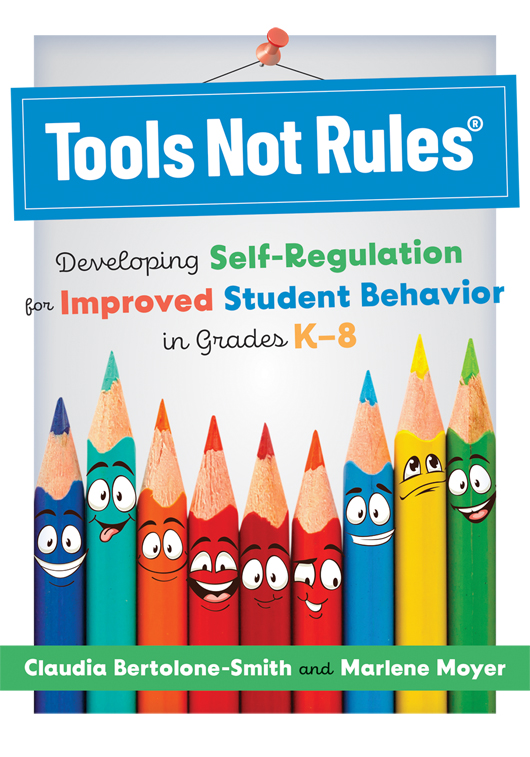Free Reproducibles
Tools Not Rules®
Developing Self-Regulation for Improved Student Behavior in Grades K–8
Engage your students in monitoring, understanding, and improving their behavior using the Tools Not Rules® (TNR) approach. By limiting isolation, shame, and judgment from the choices students make, this approach allows students to honestly assess and effectively regulate their behaviors. With helpful strategies and thoughtful language, teachers using TNR can create a welcoming and encouraging environment for students to learn, improve, and excel.
Benefits
- Promote a healthy educator mindset that recognizes students are more than the choices they make.
- Increase positive connections with students by helping them diminish behaviors getting in the way of academic success.
- Develop an effective and reliable plan for working with behaviors that hinder student learning.
- Encourage honesty to develop students’ accountability regarding their behavior choices.
- Employ diverse strategies to promote students’ behavior awareness and self-regulation.
- Improve the classroom community and learning environment through the use of a novel approach to changing whole-class and individual student behavior.
- Adopt thoughtful language that facilitates constructive self-assessment and improvement.
- Build an empathetic community among students, recognizing that everyone can choose unproductive behaviors and then change to more effective ones.
TABLE OF CONTENTS
Chapter 1: Bias in Education
Chapter 2: Dunning-Kruger Effect Bias
Chapter 3: Herd Mentality Bias
Chapter 4: Anchoring Bias
Chapter 5: Decision Fatigue Bias
Chapter 6: In-Group Bias
Chapter 7: Scarcity Bias
PRINTABLE REPRODUCIBLES
Chapter 3: Adopting the Tools Not Rules Language
Chapter 6: Overcoming Implementation Challenges and Realizing Possibilities
Appendix: The Tools Not Rules Study
SUGGESTED RESOURCES
Books
- Heflebower, T., Hoegh, J. K., Warrick, P. B., & Flygare, J. (2018). A teacher’s guide to standards-based learning: An instruction manual for adopting standards-based grading, curriculum, and feedback (1st ed.). Denver, CO: Marzano Resources.
- Jensen, E. (2019). Poor students, rich teaching: Seven high-impact mindsets for students from poverty (Using mindsets in the classroom to overcome student poverty and adversity). Bloomington, IN: Solution Tree Press.
- Marzano, R. (2017). The new art and science of teaching. Denver, CO: Marzano Resources.
- Marzano, R., Rains, C., & Warrick, P. (2020). Improving teacher development and evaluation. Bloomington, IN: Marzano Resources.
- Marzano, R., Warrick, P. B., Rains, C. L., & DuFour, R. (2018). Leading a high reliability school. Bloomington, IN: Solution Tree Press.
- Marzano Resources. (n.d.). Marzano high reliability schools. Accessed at www.marzanoresources.com/hrs/high-reliability-schools on November 22, 2023.
Websites
Chapter 4
Chapter 6

